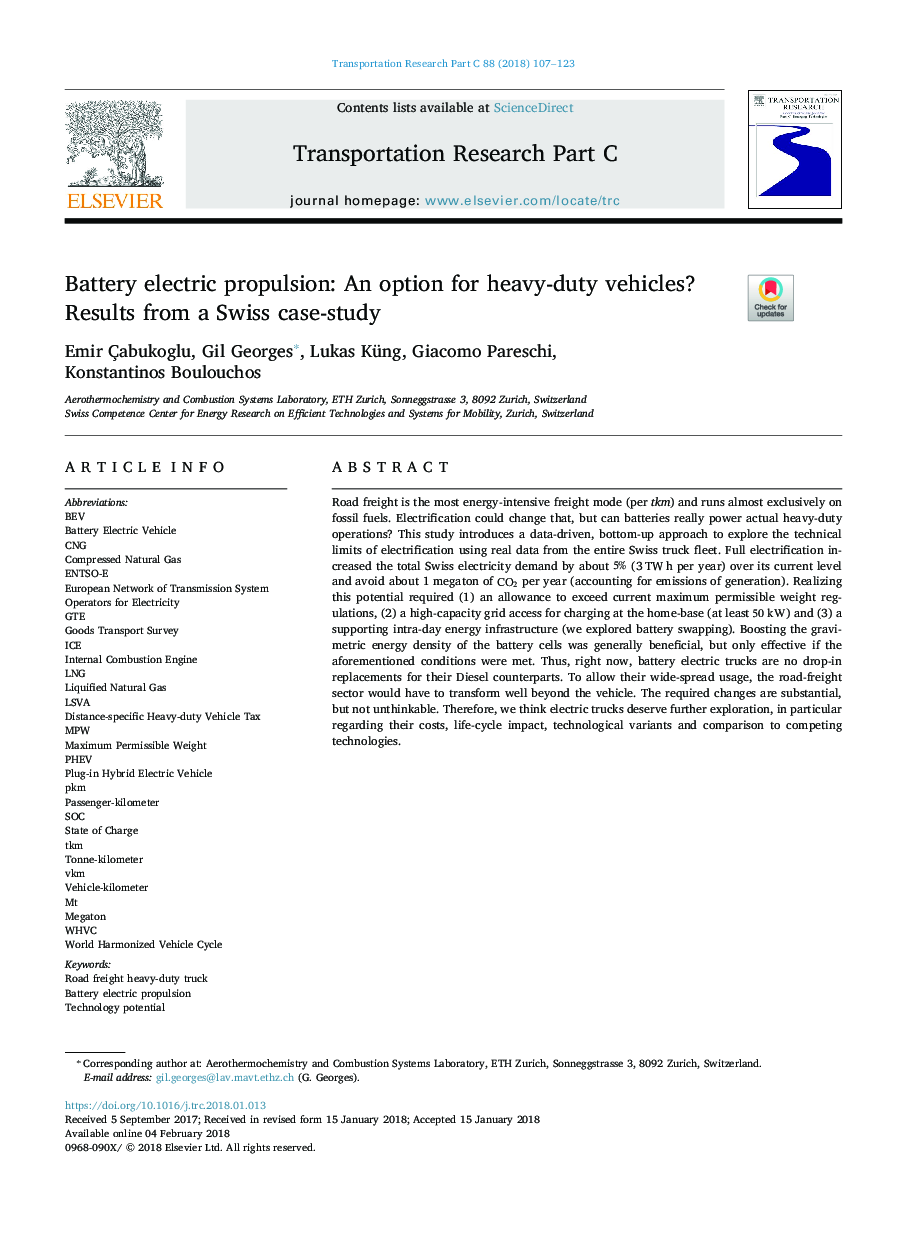| Article ID | Journal | Published Year | Pages | File Type |
|---|---|---|---|---|
| 6936144 | Transportation Research Part C: Emerging Technologies | 2018 | 17 Pages |
Abstract
Road freight is the most energy-intensive freight mode (per tkm) and runs almost exclusively on fossil fuels. Electrification could change that, but can batteries really power actual heavy-duty operations? This study introduces a data-driven, bottom-up approach to explore the technical limits of electrification using real data from the entire Swiss truck fleet. Full electrification increased the total Swiss electricity demand by about 5% (3â¯TWâ¯h per year) over its current level and avoid about 1 megaton of CO2 per year (accounting for emissions of generation). Realizing this potential required (1) an allowance to exceed current maximum permissible weight regulations, (2) a high-capacity grid access for charging at the home-base (at least 50kW) and (3) a supporting intra-day energy infrastructure (we explored battery swapping). Boosting the gravimetric energy density of the battery cells was generally beneficial, but only effective if the aforementioned conditions were met. Thus, right now, battery electric trucks are no drop-in replacements for their Diesel counterparts. To allow their wide-spread usage, the road-freight sector would have to transform well beyond the vehicle. The required changes are substantial, but not unthinkable. Therefore, we think electric trucks deserve further exploration, in particular regarding their costs, life-cycle impact, technological variants and comparison to competing technologies.
Keywords
Related Topics
Physical Sciences and Engineering
Computer Science
Computer Science Applications
Authors
Emir Ãabukoglu, Gil Georges, Lukas Küng, Giacomo Pareschi, Konstantinos Boulouchos,
